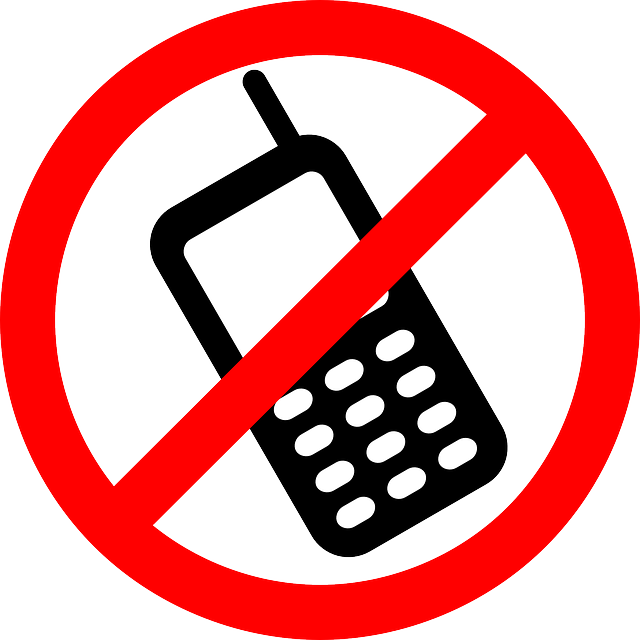Meetings & Instructors
Class Sessions
Location: Detchon 111
Section 1: Mondays, Wednesdays, and Fridays 10:00-10:50
Section 2: Mondays, Wednesdays, and Fridays 2:10-3:00

Dr. Jacob van der Kolk
vanderkj@wabash.edu
Office: Detchon 201
Office Hours
Mondays and Wednesdays 3:00-5:00
Tuesdays and Thursdays 1:00-3:00
and by appointment
Tutorials
Location: Detchon 212
Section 1: Tuesdays 8:00-8:50
Section 2: Tuesdays 9:00-9:50
Section 3: Tuesdays 2:10-3:00
Section 4: Wednesdays 8:00-8:50
Section 5: Thursdays 10:00-10:50
Section 6: Thursdays 3:10-4:00

Teaching Assistant
Fin Bandholz
bandholf@wabash.edu
Course Description and Objectives
In German 101, you will start learning to communicate in German through speaking, writing, listening, reading, and cultural knowledge. Over the course of the semester, you will learn vocabulary (as well as grammatical and cultural knowledge) in order to interpret oral and written language, to interact with other speakers, and to express yourself. Students who diligently complete the tasks of this course will meet or exceed the "Novice" levels for speaking, reading, listening, and writing as defined by ACTFL Proficiency Guidelines (see page 9).
Gaining proficiency in a foreign language is highly rewarding, but requires lots of input - that means exposure to German - and lots of practice! I expect you to speak only in German during class and tutorials! This is not always easy, but you will learn much more quickly in an immersive environment! Our course will include:
- in-class activities, including pair and group work focusing on using the new structures and vocabulary in a variety of contexts. Active participation is essential!
- daily homework, including grammar readings, vocabulary memorization, and extra practice. You will learn the grammar and vocabulary mostly on your own, not in class!
- cultural readings including short texts, films, TV episodes, short videos, and music
- a tutorial session once a week with our TA for extra German practice
Learning Objectives
- will begin to develop an active vocabulary in German, focusing on those elements that are most frequently used in classroom and interpersonal communication.
- will acquire basic grammatical structures (e.g., verb conjugations, past-tense forms, subordinate clause constructions, etc.)
- will be able to read and derive meaning from short, straightforward texts.
- will become able to express personal meaning both orally and in writing at a novice level.
- explore an array of cultural topics that will deepen their understanding of German, Swiss, and Austrian culture.
Course Materials

No "Textbook" Required! We are using a new online-only curriculum developed at Princeton University and adapted for Wabash students: der|die|das. This curriculum innovates by focusing on the 1,200 most frequently used words in German. Each chapter presents (on average) 80 words from this list, which subsequent chapters review in varying formats, allowing you to develop a solid grasp of the most frequently used words in the language. By the end of the 100-level sequence, we will have learned about 800 of the 1,200 core vocabulary words!
Suggested: A Dictionary App, sparingly. Should you need to look up a word, first use our own vocabulary lists. If that does not help, try either the LEO Online Dictionary or Linguee. Both have iOS and Android apps as well. Do not use online translators.
Grading and Assignments
Grading Scale
| A | A- | B+ | B | B- | C+ | C | C- | D |
| 93.33-100% | 90-93.32% | 86.67-89.99% | 83.33-86.66% | 80-83.32% | 76.67-79.99% | 73.33-76.66% | 70-73.32% | 60-69.99% |
Participation (20%)

I will grade your performance in and preparation for class, taking into consideration the following criteria:
- In-Class Participation. You should involve yourself in all class meetings, including group and whole-class activities, and make a good-faith effort to express yourself in German. However:
Linguistic Correctness.You are not expected to speak perfectly, just to try your best as often as you can with the language you have learned!
- Preparation. You should come to class ready and willing to practice the vocabulary, grammar, and topics touched on in your homework and previous class sessions. You should bring all necessary materials (books, worksheets, notes, etc.).
- Cooperation. You should support and encourage your fellow students in your common effort to learn the language. Be an asset to others' learning, and they will be an asset to you.
- Attendance. Please email me in advance if you will miss class. You are allowed up to four absences during the quarter (between both class and tutorial), including college-sanctioned events, illness, and family emergencies. For each absence after four absences, your participation grade will be lowered a letter grade: B+ changes to C+, etc. Please contact me about extenuating circumstances.
- Tutorials. In addition to regular class meetings, you will also have one 50-minute tutorial each week. These sessions continue the work begun in class and will allow you to practice your German in a small group with a native speaker. The same attendance and participation policies apply to the tutorials, so you should always come prepared to use the structures and vocabulary you have learned in class.
Note: Our TA serves as an authentic speech model in the target language and to give you guidance in proper German structure and idiomatic usage of the language, and not as proofreader.
Homework (15%)
Each day you should check the homework plan posted on Canvas. Course assignments include a mix of online homework and written (or typed) assignments. It is your responsibility to complete homework as assigned on a daily basis. We move quickly in class, so if you miss a day or two of homework, you might find yourself lost. Expect to spend 1-2 hours on homework and preparation for each class session. Please see me if you feel you are working more than this amount.
- Online Homework. These exercises allow me to check your understanding and see that you are keeping up with the course.
- Wortschatz. Vocabulary is the main building block of language. Each day you should study an assigned section of the chapter vocabulary. Studies have shown that learning a few words each days is much better than trying to memorize a list right before a test. The der|die|das website has flash cards for the chapter vocabulary, or you can use an app like Memrise.
Chapter Tests (50%, 10% each)
For each chapter will have a test to give you immediate feedback. Tests will also include cultural content from our course. While focusing on new material, each test assumes continued mastery of the previous chapters.
- Missing a Test. Each test must be taken on the scheduled day. Students who have conflicts due to athletics or personal matters must make prior arrangements with me. Following a missed test or exam, students must provide written notification from an appropriate administrative official. Otherwise, the test will not be rescheduled and will receive a score of "0".
Final (15%)
There will be a final exam, which will include both an oral and written portion.
How to Succeed
The most successful students typically do the following:
- Get your money's worth:
- Use office hours. Email me to make an appointment, or feel free to stop by with questions! Don't suffer from FMOOWMP! →
- Speak lots! Make lots of mistakes! We use our precious class time for lots of speaking practice. I expect (and want!) you to make mistakes as you try out new vocabulary and grammar. This shows me how you've been learning.
- Ask questions! When you’re lost or confused, or have a question in class, someone else probably has the same one (and they’ll be glad you asked).
- Get help when you need it. If you feel overwhelmed or just don't understand something, get help NOW. This will save you aggravation and extra work further down the line. Take advantage of the extra videos I post, e-mail me, or come to my office hours.
- Keep up. We move fast, and everything we learn in this course builds on what we previously have learned. Students fail language courses most often because they fall behind. Make sure to:
- Show up. Missing one or (even worse) multiple sessions will not only hurt your participation grade, it will make each following session that much harder. Make things easier on yourself!
- Complete all assignments on time. Missing a day's worth of homework won't just cost you points, it will leave you unprepared for the next day's lesson and the next assignment.
- Learn smarter, not longer. Expect to put in up to (but not more than) 2 hours of work outside of class for each hour of class and tutorial. However, note that studies show that people retain knowledge better when they learn small amounts at a time and review repeatedly. With a little foresight and planning, you can save time and frustration if you:
- Study opportunistically. Use time that you might waste (e.g. standing in a long line, eating by yourself, waiting for class to start) practicing vocabulary instead of viewing cat photos on your phone.
- Study moderate amounts every day. You can’t learn a language by cramming. You need to build your long-term memory. Instead of doing all your homework right before it is due or memorizing the vocabulary the night before a test, do a moderate amount every day and give yourself time to review your work.
- Take breaks. If you do all your coursework in one big sitting, you may not be giving yourself time to let things sink in. Schedule in a break so that you don't work for more than an hour without taking some sort of a break.
- If you get stuck, revisit later. If a particular lesson or exercise frustrates you, put it aside for a while, work on something else for a while, and let your brain reset. It may make sense later.
- If you need more than 2 hours/day to keep up, or just feel overwhelmed, get help! Come and see me in my office hours, so that we can hash out methods that will work specifically for you.
 Find study partners. Get to know your classmates and form groups in which you can collaborate on day-to-day assignments, and study for tests. But make sure you still do your own work!
Find study partners. Get to know your classmates and form groups in which you can collaborate on day-to-day assignments, and study for tests. But make sure you still do your own work!- Master the basics. Focus on learning the fundamentals rather than trying to directly "copy" over from English. It took you decades to be able to sophisticatedly enunciate complex ideas in your first language(s). Rather than attempting to directly replicate this sophistication, aim instead at expressing ideas by creatively using the basics we learn here.
- Vocabulary, vocabulary, vocabulary! Having the words in your head makes comprehension and production easier and faster. Learn a few words every day. Use der|die|das's flash card utilities or (even better) old-fashioned paper flash cards – find what works for you!
- Make learning fun! Language learning need not be serious or dull! Make class fun and welcoming for yourself and your classmates by participating in lighthearted yet respectful ways. Join the German club!
- Celebrate your progress! When you get frustrated in this course, remember that you are doing something amazing: Over the next 15 weeks you will learn what took you years in your first language. Every once in a while, celebrate yourself!
Class Etiquette and Course Policies
In the Classroom
I want our class to be a respectful environment, where all students feel comfortable sharing their thoughts and opinions. Please let me know if anything in class (or outside of class) makes you feel uncomfortable. I’m happy to meet with you at any point in the semester to discuss individual course performance. I look forward to a fun and productive class with you!

- Bitte keine Handys! Please silence your cell phones and put away laptops and tablets, unless required for class activities. If I see you texting in class it will impact your participation grade.
- Please check your Wabash College email frequently as I use email for class communication.
- Practice professional email etiquette with all your professors.
- In German, this means Anrede (Sehr geehrter Dr. van der Kolk/Guten Tag Dr. van der Kolk), message, and Gru&slig;formel/Schluss (Viele Grü&slig;e/Schöne Grü&slig;e/Mit freundlichen Grü&slig;en/usw).
- Appropriate Address. In Germany, professors and students use the formal “Sie” form and last names: Herr/Frau + Last Name. We will adapt this model slightly. You can call me Dr. van der Kolk, and I will generally use Sie + First Name to address you.
- Pronouns and Preferred Names. Please let me know as soon as possible if you have a preferred name that differs from your legal name listed in the College’s records, or if you have specific pronouns that you would prefer I and others use in reference to you.
Academic Integrity
| Acceptable. DO THIS! | Unacceptable. DON'T DO THIS! |
| Ask a peer 3-4 specific questions about your assignment. | Have a peer (or your mom) re-write a paragraph or paper. |
| Use an expression from the textbook in your own work. | Copy out whole sentences from another source and claim it as your own work. |
| Ask your professor specific questions on how to say something. | Have a native speaker, friend, or peer proofread your essay. |
| Use an online translator for single words (be careful!*) | Use an online translator to translate a sentence or paragraph. |
| Use an online dictionary to check genders, plural forms, or conjugations (please do!). | Copy an English text and have it translated into German. |
| Use an outside source with a citation. | Use outside sources without citing. |
| Work with a classmate or study group on daily assignments (not essays), and acknowledging when you do so. | Have a classmate do your assignment, or work with a group without acknowledging you did so. |
| Checking your book and your notes to make sure your grammar is correct. | Using an automated grammar checker to revise your mistakes. |
English: Dear Fruit Syrup: I'm passing by the category today.†
The Gentleman's Rule
As with all other facets of Wabash life, the Gentleman's Rule applies to your interactions with me and your colleagues inside and outside the classroom, as well as to the completion of all academic requirements of the course. Except for leading an article discussion and data collection for the minilabs, all assignments and exams are to be completed independently, with no assistance from other people or other students’ work. Remember the Wabash mission statement: “Wabash College educates men to think critically, act responsibly, lead effectively, and live humanely.” Acting responsibly includes not cheating. If there are any questions about how the standards of academic integrity apply to a specific assignment or test, please do not hesitate to talk with me for clarification before handing in the assignment. Uncertainty about the application of these principles will not excuse a violation. Remember that you can be expelled for academic dishonesty!
The general principle is that you should always submit work that is entirely your own. Here are some specific examples of academic dishonesty:
- Copying another student's exam or assignment – either a current or past student.
- Collaborating with another student on your term paper, article discussion summary, or minilab writeup.
- Using another student's notes for your article discussion summary.
- Copying any text from the internet (or other resource) on an assignment.
- Paraphrasing any text from any resource without providing a reference.
- Extensive paraphrasing of text from any resource even when providing a reference.
- Turning in the same assignment to multiple courses, in the same or different semesters, without prior consent from both professors.
- Taking another student’s graded assignment without his permission.
This is not an exhaustive list of violations. If you have a question, ask before you turn in the assignment.
If I find out that you have cheated on an assignment, you will receive ZERO points for that assignment, and I will turn you into the Dean for an academic dishonesty strike.
Accommodations
Students who need accommodations (e.g. extra time for exams, separate testing room) are asked to arrange a meeting during office hours or by appointment the first week of class, or as soon as possible if accommodations are needed immediately. Accommodations will not be granted unless appropriate documentation is on file with Heather Thrush, Associate Dean for Student Engagement and Success.
Students with disabilities (apparent or invisible) are invited to confidentially discuss their situation with the disability coordinator, Dean Thrush. If a student wishes to receive an academic accommodation, it is required that his documentation of the disability be on file with Dean Thrush, who can, in confidence, provide information and guidance. Early notification helps us all work together in the most effective ways. Dean Thrush can be reached at her office (Center Hall 112A), by phone (x6347), or by email.
The Office of Student Enrichment
Succeeding at Wabash College takes a great deal of effort and planning. Life is complex, assignments are time consuming, and staying involved keeps you running. When you have questions about how to make everything fit into your schedule, how to study more efficiently, how to take better notes, or any other question about developing your college skills, visit the Office of Student Enrichment (OSE).
Go to here to arrange a one-on-one, personalized meeting with Prof. Koppelmann. No matter your questions, Prof. Koppelmann will work with you to find a solution that helps you achieve your goals.
Counseling Center
Garden Level of Chapel, Kevin Swaim (x6252) and Jamie Douglas (x6252). It's free! It's confidential, and this guarantee is taken seriously. Your contact with the counseling center is confidential between you and the counselor to the fullest extent of the law (confidentiality may be breached in cases such as when there is imminent danger to someone or a report of current abuse of a child or elder). Reasons Wabash students go to the counseling service include personal and academic questions, advice for family problems, stress, anger, grief and loss, conflicts with family or friends or guys in their living units, alcohol and other drugs, feeling edgy and anxious, relationships, motivation problems, sexuality, concerns about friends, just wanting someone neutral to talk to. Walk-ins 11-1 M-Th (knock if they are in session during those hours) or by appointment.
Semester Schedule
This outline contains all major assignments such as tests and essays. It is, however, subject to change at my discretion. For daily homework, see the detailed plan online on Canvas.
| Week 1 | ||
| Friday, August 23 Introduction |
||
| Week 2 | ||
| Monday, August 26 Kapitel 1: Thema 1; Syllabus Quiz |
Wednesday, August 28 Kapitel 1: Thema 1 |
Friday, August 30 Kapitel 1: Thema 2 |
| Week 3 | ||
| Monday, September 2 Kapitel 1: Thema 2 |
Wednesday, September 4 Kapitel 1: Thema 3 |
Friday, September 6 Kapitel 1: Thema 3 |
| Week 4 | ||
| Monday, September 9 Kapitel 1: Thema 4 |
Mittwoch, September 11 Kapitel 1: Thema 4 |
Freitag, September 13 Test 1 |
| 5. Woche | ||
| Montag, September 16 Kapitel 2: Thema 1 |
Mittwoch, September 18 Kapitel 2: Thema 1 |
Freitag, September 20 Kapitel 2: Thema 2 |
| 6. Woche | ||
| Montag, September 23 Kapitel 2: Thema 2 |
Mittwoch, September 25 Kapitel 2: Thema 3 |
Freitag, September 27 Kapitel 2: Thema 3 |
| 7. Woche | ||
| Montag, September 30 Kapitel 2: Thema 4 |
Mittwoch, October 2 Kapitel 2: Thema 4 |
Freitag, October 4 Prüfung 2 |
| 8. Woche | ||
| Montag, October 7 Kapitel 3: Thema 1 |
Mittwoch, October 9 Kapitel 3: Thema 1 |
Freitag, 11.10.2019 Midsemester-Ferien: Keine Sitzung! |
| 9. Woche | ||
| Montag, 14.10.2019 Kapitel 3: Thema 2 |
Mittwoch, 16.10.2019 Kapitel 3: Thema 2 |
Freitag, 18.10.2019 Kapitel 3: Thema 3 |
| 10. Woche | ||
| Montag, 21.10.2019 Kapitel 3: Thema 3 |
Mittwoch, 23.10.2019 Kapitel 3: Thema 4 |
Freitag, 25.10.2019 Prüfung 3 |
| 11. Woche | ||
| Montag, 28.10.2019 Kapitel 4: Thema 1 |
Mittwoch, 30.10.2019 Kapitel 4: Thema 1 |
Freitag, 1.11.2019 Kapitel 4: Thema 2 |
| 12. Woche | ||
| Montag, 4.11.2019 Kapitel 4: Thema 2 |
Mittwoch, 6.11.2019 Kapitel 4: Thema 3 |
Freitag, 8.11.2019 Kapitel 4: Thema 3 |
| 13. Woche | ||
| Montag, 11.11.2019 Kapitel 4: Thema 4 |
Mittwoch, 13.11.2019 Kapitel 4: Thema 4 |
Freitag, 15.11.2019 Prüfung 4 |
| 14. Woche | ||
| Montag, 18.11.2019 Kapitel 5: Thema 1 |
Mittwoch, 20.11.2019 Kapitel 5: Thema 1 |
Freitag, 22.11.2019 Kapitel 5: Thema 2 |
| 15. Woche | ||
| Montag, 25.11.2019 bis Freitag, 29.11.2019 Thanksgiving-Ferien: Keine Sitzungen! |
||
| 16. Woche | ||
| Montag, 2.12.2019 Kapitel 5: Thema 2 |
Mittwoch, 4.12.2019 Kapitel 5: Thema 3 |
Freitag, 6.12.2019 Kapitel 5: Thema 3 |
| 17. Woche | ||
| Mittwoch, 11.12.2019, 9.00-12.00 Section 1 Endklausur |
Mittwoch, 11.12.2019, 13.30-16.30 Section 2 Endklausur |
Winterferien! Wir sehen uns im Januar! |